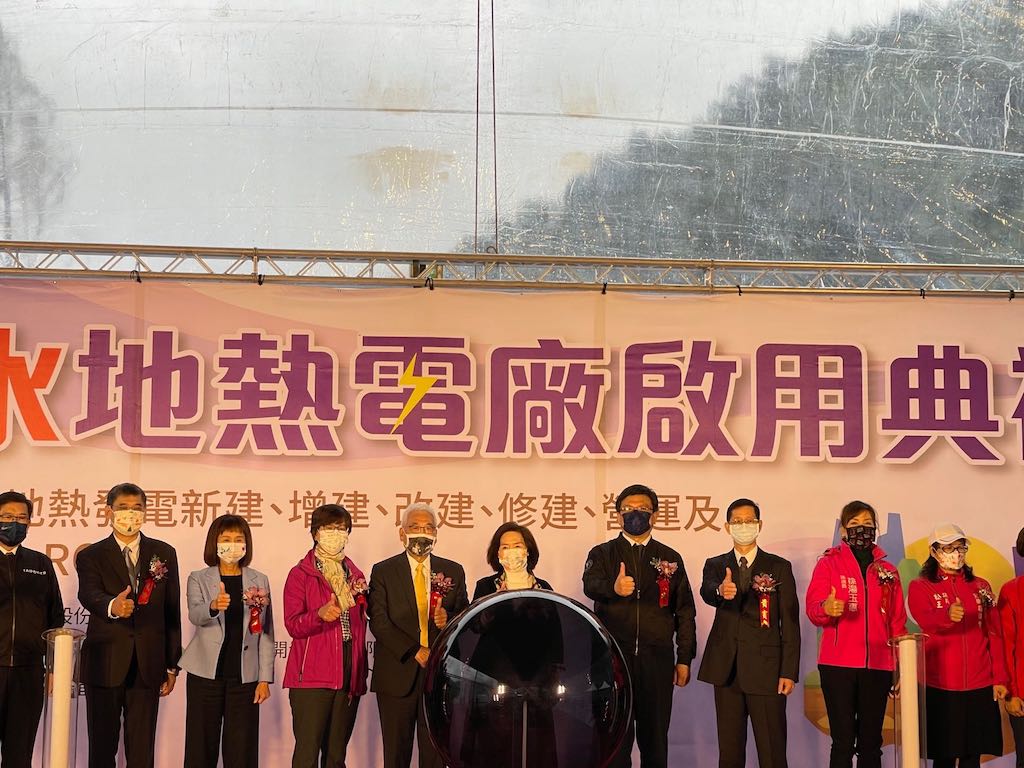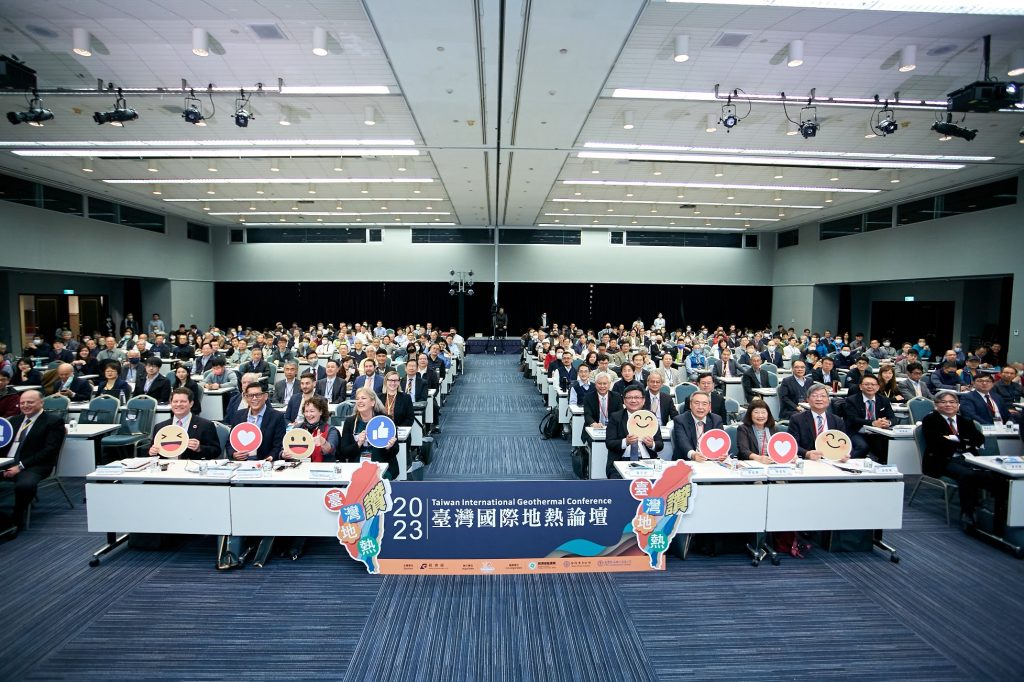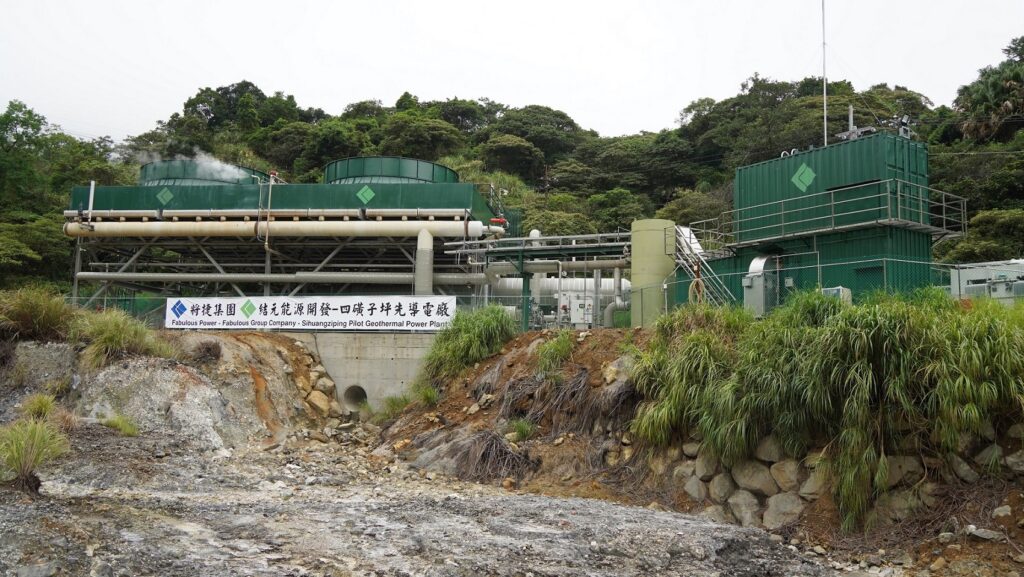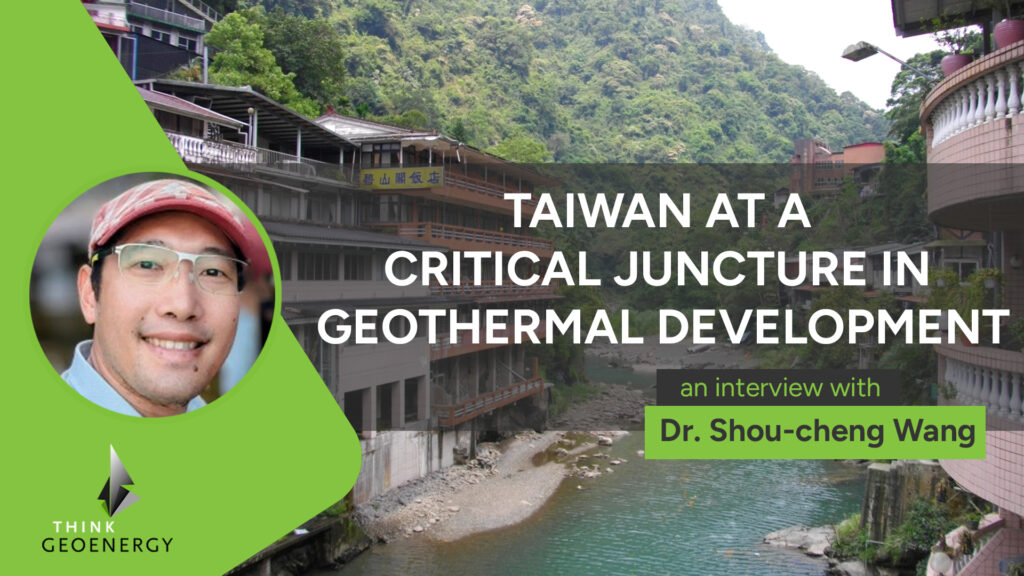Interview – Taiwan at a critical juncture in geothermal development
In this interview with Dr. Shou-cheng Wang, we discuss the building momentum of geothermal development in Taiwan and the upcoming TIGC 2024.
In recent years, Taiwan has slowly but resolutely built a modest geothermal power sector. In a region dense with volcanic centers and hot springs, there is certainly great incentive to develop this potential t0 be at par with neighboring countries in the Asia and Pacific.
At this critical juncture of Taiwan’s geothermal journey, the country will once again be hosting the Taiwan International Geothermal Conference in Taipei on February 20-21, 2024. This event provides an excellent platform to learn more about the young geothermal industry of Taiwan, and perhaps play a role in its inevitable growth.
Registration for the 2024 Taiwan International Geothermal Conference can be done via this link.
ThinkGeoEnergy is proud to be supporting the TIGC 2024 and will have on-site presence. To arrange for meeting and interviews, please get in touch with gladis@thinkgeoenergy.com.
To learn more about the status of Taiwan’s geothermal sector and what to expect from TIGC 2024, we interviewed Dr. Wang, Shou-Cheng from the Geothermal Team of National Taiwan Ocean University, the Taiwan Geothermal Association, and the Taiwan Ecological Stewardship Association.
Can you give us a brief overview of Taiwan’s geothermal industry, which projects are online, and which are currently under development?
Before the addition of geothermal regulations to the Renewable Energy Regulations in 2023, more than 23 geothermal projects in Taiwan have applied to the government for development, from zero to 5 from 2021 to the end of 2023, all of which are CGS small-scale power plants using ORC technology within 150 degrees, and new power manufacturers are switching to operation every year.
The first is the Qingshui geothermal power plant, which has been restarted after 28 years of closure, and the latest is the first geothermal power plant in Taiwan to use dry steam in a volcanic area, both with technical support from ORMAT. The other three geothermal power plants mainly use Taiwan’s self-developed geothermal power generation technology, but due to the lack of site scale and drilling technology, the current single-well production capacity is only 1/5 of the international average.

In 2023, Greenfire, a technology company of AGS, signed an MoU with Taipower Corporation to restart the geothermal power generation program on Green Island, and the Taiwan Authority Research Institute and CNPC also restarted the EGS exploration program in the Zhangli Basin, actively introducing Taiwan’s advanced geoscience research capacity into geothermal resource exploration and evaluation.
In addition, there is also a team in Taiwan that is evaluating the geothermal potential of near-shore submarine volcanoes, which are natural resources that Taiwan has neglected in the past.
How prominent is the role of geothermal energy in Taiwan’s net-zero initiative?
The Taiwanese government’s 2050 net-zero carbon emission plan approved by 2023 has a total of 12 key strategies, one of which is “Forward Energy.” This sets a target scale of 3 to 6.2GW for geothermal power generation, replacing nearly one-third of coal-fired power units, and reaching at least 1 GW by 2035, representing a compound growth rate of up to 52%.
The government must carry out policy reforms to improve administrative efficiency in order to achieve the target, as in the case of Taiwan’s development of solar and offshore wind power, which is currently considered by the government to be the third renewable energy source that can be scaled up, and has the opportunity to replace coal-fired power generation.
What is the current status of Taiwan’s policy framework to support geothermal development?
In 2018, Taiwan revised its EIA regulations to relax the criteria for geothermal EIA recognition to 10MW, established a geothermal exploration information platform in 2019, and made public exploration reports and drawings from 1966 to the present
In 2022, the “Taiwan 2050 Net Zero Carbon Emissions” plan was formulated with geothermal power generation as one of the key elements. The “Single Service Window for Geothermal Power Generation” was then established to assist developers in handling regulatory disputes.
In 2023, the “Renewable Energy Ordinance” was amended to include a special chapter on geothermal power generation, and it is expected that the “Renewable Energy Regulations” will be revised again in 2024 in accordance with the suggestions of the industry, and that the policy will be planned in the direction of the geothermal zone.
What can Taiwan learn from its more developed neighbors, such as the Philippines, Indonesia, New Zealand, etc.?
In the past five years, Taiwan has often exchanged views with the geothermal industry chain in the Philippines, New Zealand and Japan. The New Zealand Representative Office, in particular, has provided many indigenous participation mechanisms for Taiwan’s promotion of geothermal energy, helping Taiwan’s indigenous governing agencies and NGOs to guide indigenous people to understand the characteristics of the geothermal industry.
The new regulations and policies of Indonesia and the Philippines provide an important reference for Taiwan to formulate the first geothermal special regulations and establish large-scale goals.

What are Taiwan’s strengths in terms of expertise, infrastructure, technology, or government that can contribute to the development of the geothermal industry?
Taiwan is a fully democratic developed country, an indispensable democratic partner in the Indo-Pacific region, and one of the developed countries in semiconductor technology.
The country generally has good level of education and citizenship among its people. However, due to the authoritarian system experienced in politics, it has become the country with the highest density of nuclear power plants on an island with an active plate. This has hindered the development of the geothermal energy industry chain.
However, Taiwan is about to become a non-nuclear country by 2025. The power feeder infrastructure left by nuclear power plants has become an advantage for geothermal development.
Taiwan is also the fastest-growing democracy for offshore wind power in Asia, demonstrating that there is a good synergy between policymaking and industrial investment. With this successful experience, government institutions have the opportunity to address the core issues of the geothermal industry and promote the development of geothermal energy.
What kind of support does Taiwan’s geothermal industry need to accelerate growth?
Although state-owned companies and private enterprises have invested in the development of small-scale geothermal power plants in Taiwan, they need to further develop them on a large scale, introduce advanced technologies, and establish engineering specifications.
In the past, policies neglected the communication issues of stakeholders in private green energy development. This has resulted in public opposition to the development of green energy in Taiwan. It is thus also necessary to plan an appropriate communication mechanism in advance to reduce the timeline and risks of geothermal development.
What can attendees expect at the upcoming Taiwan International Geothermal Congress?
TIGC 2024 has invited many world-class experts and teams with rich experience and contacts in geothermal and related fields. Developers and professionals can quickly learn about the innovations and achievements in the field of geothermal energy, and create opportunities for mutually beneficial cooperation through activities such as conference networking and outdoor visits to power plants.




















